Did you know that the secrets to ultimate relaxation lie in techniques dating back over 2,500 years? Thai massage is not just about loosening tight muscles; it's about a journey to a peaceful state of mind and body. But there's more to it than meets the eye...
With the chaotic pace of modern life, everyone yearns for tranquility. Thai massage holds the promise of serenity, offering benefits that go beyond simple physical relief. Today, it's more critical than ever to explore its profound effects on wellness and mental health.
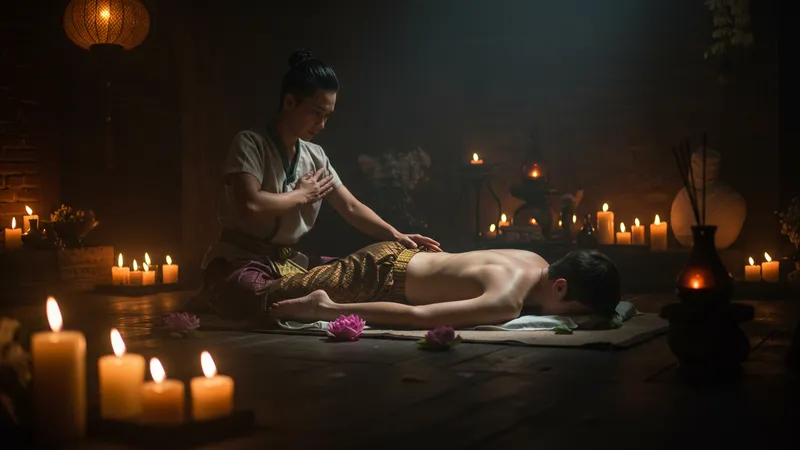
The traditional Thai massage, often described as "yoga for the lazy", is a highly interactive practice involving rhythmic pressing and stretching of the entire body. Unlike more static forms of massage, practitioners use their hands, legs, feet, and knees to apply pressure and align energies. This healing art is steeped in ancient Buddhist principles—but that's not even the wildest part...
Recent studies suggest that Thai massage can do wonders beyond typical relaxation, like boosting immunity and emotional well-being. It’s been linked to reduced anxiety and increased flexibility in surprising ways. These potential health benefits are as extensive as they are unexpected. But what happens next is sure to raise a few eyebrows among skeptics…
As you navigate through the intricacies of this holistic practice, prepare to uncover revelations that blend ancient wisdom with modern science. What happens next shocked even the experts...
At the heart of Thai massage are techniques that blend acupressure and assisted yoga poses. This unique mix is designed to improve flexibility, circulation, and energy levels. It's less about applying pressure and more about healing through harmonizing energy flows. This method involves not just the physical but also the spiritual aspect, providing insights into wellness through tradition.
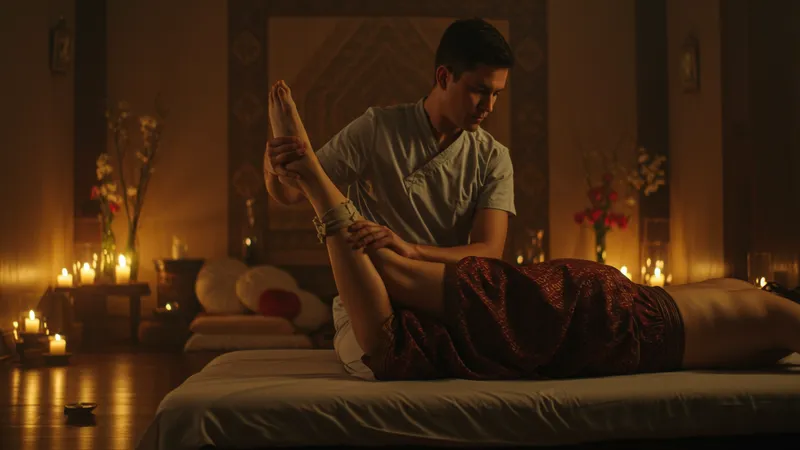
Thai massage is grounded in the 'Sen' energy lines, a concept that might sound foreign to many. These lines are invisible pathways running through the body, similar to meridians in Chinese medicine. Practitioners believe that stimulating these lines can alleviate pain and enhance bodily functions. But there’s one technique that even seasoned professionals find intriguingly effective...
One method includes a gentle rhythmic movement that rocks the body, believed to enhance lymphatic drainage. Such techniques are subtle yet impactful, gradually becoming popular in mainstream wellness circles. But despite its growing acceptance, there remains an undercurrent of skepticism. What follows might change this perception forever.
The practice challenges modern wellness norms, inviting us to question our habitual approaches to health and relaxation. As you dig deeper, you'll discover how this age-old practice continuously reshapes our understanding of holistic health. And this revelation is just scratching the surface of what’s next...
What’s truly fascinating about Thai massage is the scientific community's interest in its benefits. Despite its ancient origins, recent research takes a hard look at how these techniques can scientifically benefit modern ailments like chronic pain and stress. Thai massage isn’t merely anecdotal wellness—it’s becoming a field of study.
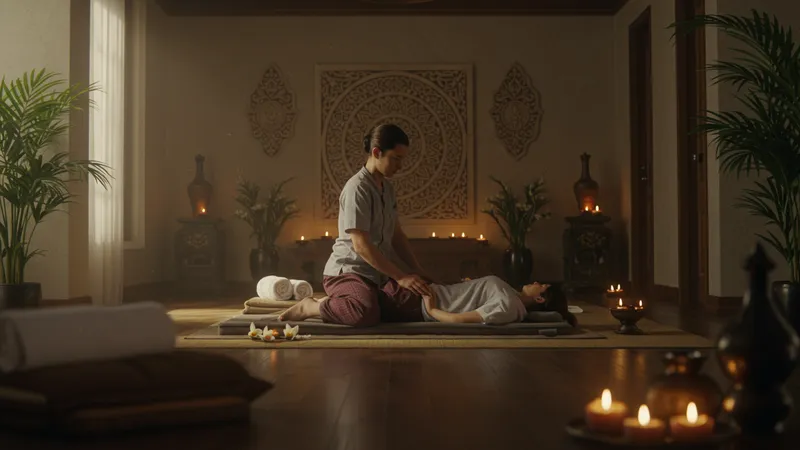
Researchers have found that engaging in regular Thai massages significantly reduces cortisol levels, the stress hormone infamously known for its detrimental health impacts. The massage's emphasis on breathing and gentle pressure can psychologically and physiologically reduce stress markers. But one study unraveled an even more unexpected result...
Not only does Thai massage lower stress, but it can actually enhance cognitive function. Participants in controlled studies reported clearer thinking and improved emotional balance after consistent sessions. So, could an ancient practice become the next frontier in cognitive health? What’s even more surprising is how...
The integration of Thai massage in clinical settings is starting to gain traction. Hospitals and wellness clinics are exploring these techniques to complement traditional treatments, prompting a reevaluation of the boundaries between ancient practices and modern medicine. As this investigation deepens, the revelations promise to be groundbreaking…
One prevailing myth about Thai massage is its association solely with exotic indulgence. While it's true that the experience can feel indulgent, its roots are deeply therapeutic, intended more for healing than mere pampering. It's time we demystify this misconception and see Thai massage in its true light.
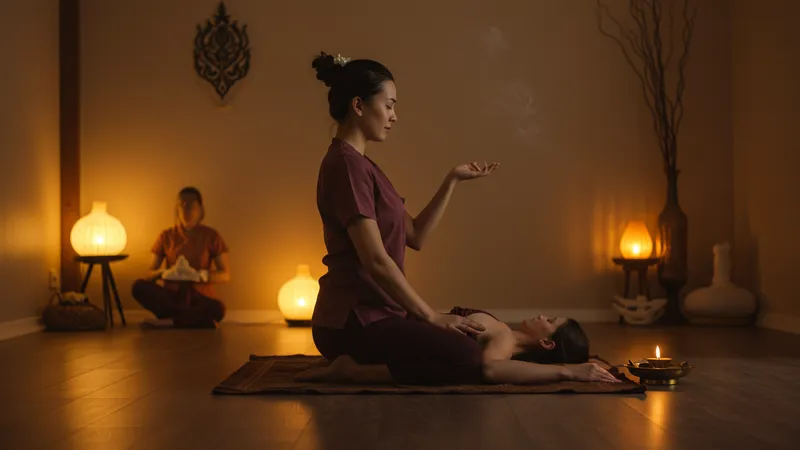
Some skeptics argue that its history is embellished and that the techniques don’t differ significantly from other forms of massage. However, the tailored approach integrating spiritual and physical elements stands as a testament to its distinctiveness. The irony is, while skeptics question its origins, it's the results that keep returning clients.
Moreover, Thai massage therapists undergo rigorous training, mastering specific techniques like ‘thumb circling’ and ‘NEEDLE’ stretches that are unique to the practice. This ensures that the therapy is not just relaxing but restorative. But what clients experience often transcends the physical realm...
The cultural tapestry of Thai massage reveals a story of community and interconnectedness that uplifts the spirit as much as it heals the body. As more people experience it firsthand, beliefs shift from skepticism to wholehearted endorsement. Yet, what most people don’t see is how...
The 21st century brings unprecedented fusion, and Thai massage is no exception. Today's sessions might integrate elements like aromatherapy and mindfulness meditation, enhancing traditional methods with modern wellness practices. The evolution signifies a renaissance for this ancient art form, adapting to contemporary needs.
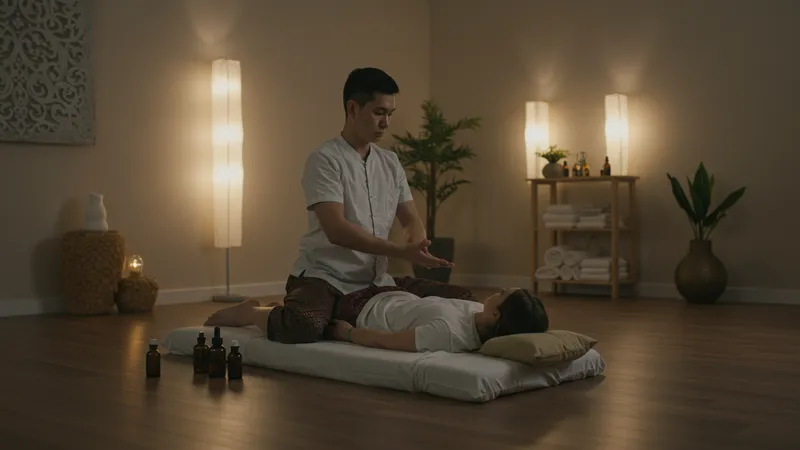
But adaptability should not be mistaken for dilution. Practitioners strive to retain authenticity while embracing innovation. They skillfully merge native philosophies with cutting-edge health insights, creating a hybrid that offers the best of both worlds. This dance between the old and the new is not without its challenges, however.
Western adaptation often demands a rethink of the original practices to align with fast-paced lifestyles. For instance, there are now express sessions that condense the therapeutic benefits into shorter, more palatable timelines for busy clients. This adjustment speaks to the pressure of modern life but manages to keep the core values intact.
Yet, this evolution raises questions about cultural preservation. Could modern tweaks compromise the traditions that define Thai massage? As more eyes are opened to the practice's broader appeal, there remains a fine line between honoring its origins and making it accessible for all.
Stories of personal transformation through Thai massage are both numerous and inspiring. Take, for example, a corporate executive who found solace from incessant migraines. With regular sessions, not only did his headaches subside, but his quality of life dramatically improved. Such cases highlight its potential beyond the typical spa day narrative.
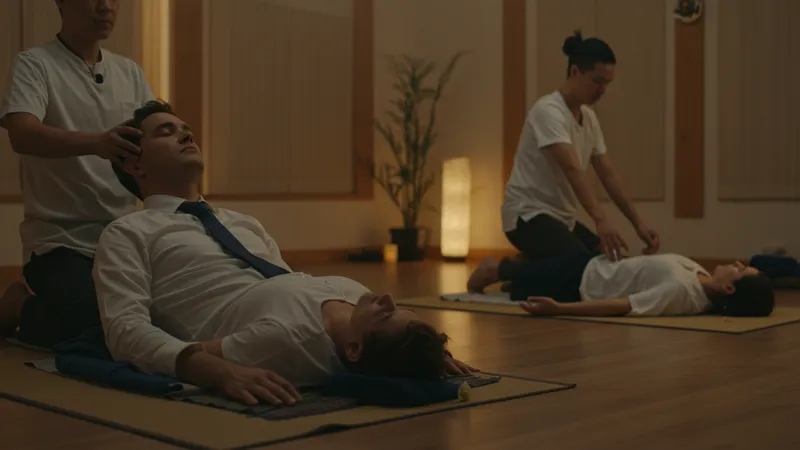
Another user shares their experience of using Thai massage as a vital part of post-injury rehabilitation. The gentle pressure and stretching not only expedited recovery but also improved overall body awareness and confidence in movement. These testimonies add a layer of personal validation that clinical studies complement.
Perhaps most striking are the accounts of mental and emotional shifts. Clients often speak of feeling grounded and energetically aligned, which translates into daily positivity and productivity. Those who once underestimated it now embrace it as a critical component of their wellness strategy.
But these stories are merely the beginning. As Thai massage continues to weave its magic, expect to hear more remarkable journeys and transformations. Some of which may redefine how we perceive traditional therapy's role in personal healing journeys.
The Thai massage industry has seen significant growth, especially in urban centers where stress levels are high. With wellness becoming a central focus, the demand for ancient healing practices is skyrocketing. This boom brings both opportunities and scrutiny to practitioners and businesses alike.
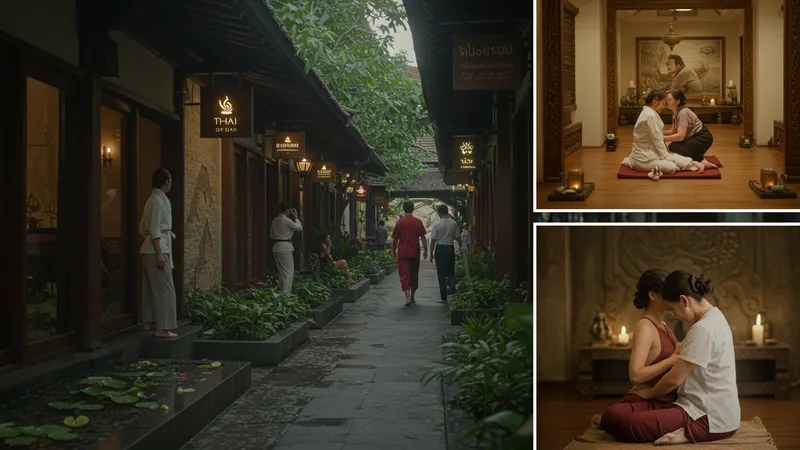
From boutique spas to luxury resorts, Thai massage is marketed as a premium service. But it's not just about the luxury experience. Many businesses highlight the therapeutic benefits, tapping into a health-conscious clientele eager for alternative remedies.
This economic boom also invites questions about regulation and standardization. As the number of practitioners rises, so does the importance of maintaining standards to ensure safety and effectiveness. Governments and industry bodies work in tandem to establish guidelines that protect consumers while preserving the practice's integrity.
The industry's continued growth signifies a shift in how the world relates to health and wellness, favoring prevention and holistic approaches. As more people invest in their well-being through Thai massage, what's next for the industry could transform personal and professional dynamics alike.
While Thai massage offers profound benefits, it's essential to recognize that it's not a cure-all solution. Certain conditions and medical situations require different approaches. Understanding where Thai massage fits into a broader healthcare plan is crucial for maximizing benefits.
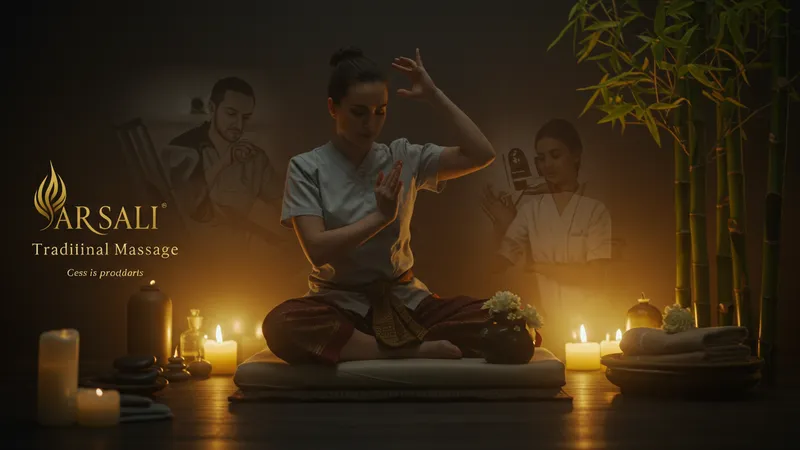
Individuals with specific health conditions should consult with healthcare providers before trying it. For instance, those with severe spinal issues or specific cardiac conditions might encounter risks if incorrectly administered. However, with proper guidance, it can still play a supportive role.
Being aware of its limitations helps set realistic expectations for anyone seeking long-term healing. It's about integrating Thai massage into a balanced lifestyle where it complements other wellness practices for the best outcomes. Practitioners often collaborate with other healthcare professionals to provide comprehensive care.
Thai massage, like any powerful tool, needs to be wielded with knowledge and respect. As it's embraced globally, awareness about its scope and limits ensures it serves as an asset rather than a source of confusion.
The intersection of technology and Thai massage may seem improbable, yet innovation finds a way. From apps that track your massage experience to virtual reality sessions that mimic in-person interactions, technology is poised to redefine accessibility and engagement with ancient practices.
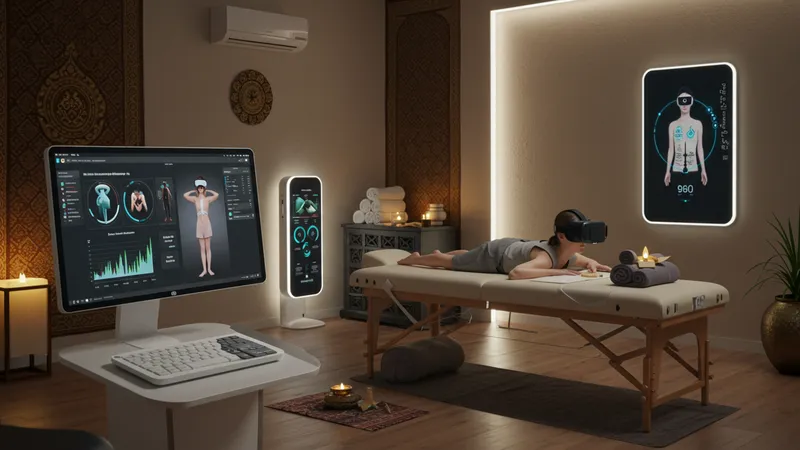
Massage studios now utilize digital tools to personalize sessions, understanding client needs through data analytics, and tailoring practices accordingly. These technological advancements are reshaping client experiences, inviting those who might usually shy away into the fold of wellness.
Virtual therapists powered by AI aren’t out of the question either. While they won't replace human touch's therapeutic power, they can offer preliminary insights and comfort those exploring Thai massage for the first time. This integration aims to enhance rather than overshadow traditional experiences.
The symbiosis of technology and Thai massage ensures that this practice remains relevant, engaging, and accessible. It’s a novel step towards inclusivity and education, making age-old wellness solutions available to anyone with a smartphone.
Preserving the authenticity of Thai massage involves overcoming significant challenges. As the practice grows global, maintaining its roots while accommodating different cultural nuances becomes complex, begging the question: How do we preserve such ancient wisdom today?
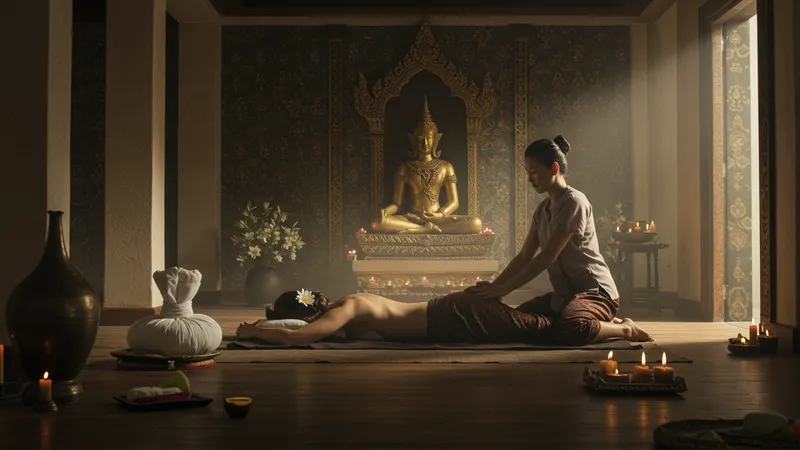
Cultural appropriation is a concern for traditional practices. It's important to honor the origins while respectfully introducing these to new cultures. This balance encourages cross-cultural respect and appreciation, integral to preserving Thai massage's spiritual heritage.
As more educators emerge, carrying forward the tradition with integrity becomes paramount. Initiatives that connect experienced practitioners with aspiring ones are making waves, ensuring knowledge passes down accurately, preserving its intended effects and purposes.
Despite challenges, the opportunity for cultural exchange fosters understanding that transcends geographical boundaries. Thai massage stands as an ambassador of peace, wellness, and interconnectedness in a rapidly transforming world landscape.
With so many practitioners entering the field, accreditation ensures quality and safety for clients and therapists alike. Certification bodies offer structured programs that equip professionals with essential skills and ethical knowledge, crucial for maintaining the practice's reputation.

Clients benefit from certified practitioners by receiving high standards of care. Accreditation signals a therapist’s commitment to excellence and is a testament to their dedication to continual learning. An informed client base better fuels the industry’s growth.
However, establishing a universal standard remains a challenge. Diverse interpretations of techniques mean that standardization must be flexible yet robust enough to enforce consistent quality. It highlights the importance of collaborative efforts across borders toward a universally recognized accreditation system.
Certification not only establishes practitioners' credentials but uplifts Thai massage's status as a serious therapeutic option. Understanding the importance of qualifications helps clients make informed choices, maintaining the blend of art, science, and tradition that defines Thai massage.
Thai massage's growing popularity reveals a surprising demographic diversity. No longer confined to wellness seekers or select demographics, its reach spans across varied age groups, cultures, and backgrounds. This diversity challenges stereotypes and enriches the practice globally.
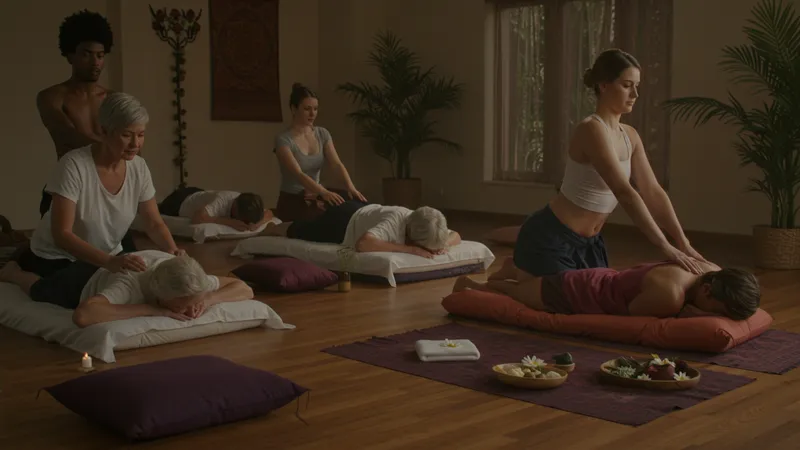
From senior citizens looking for gentle muscular relief to young athletes leveraging it for performance enhancement, Thai massage addresses multiple wellness needs. This inclusivity highlights its broad appeal and functional versatility, transforming preconceived limitations into strengths.
For those new to the experience, this breadth of demographic engagement provides reassurance; Thai massage can be universally beneficial. Narratives from disparate demographics highlight unique experiences and outcomes, suggesting richer, more wide-ranging wellness stories than previously imagined.
New faces in Thai massage redefine how aging, cultural diversity, and lifestyle choices intersect with traditional practices. It demonstrates that no matter where you come from, there’s something for everyone in this healing art, changing perceptions one story at a time.
In a world where lifestyles are continuously scrutinized for healthy alternatives, Thai massage surfaces as more than just a therapy—it's a choice and a lifestyle. Emphasizing holistic health, it nurtures a mindset beyond fleeting relaxation to sustained well-being.
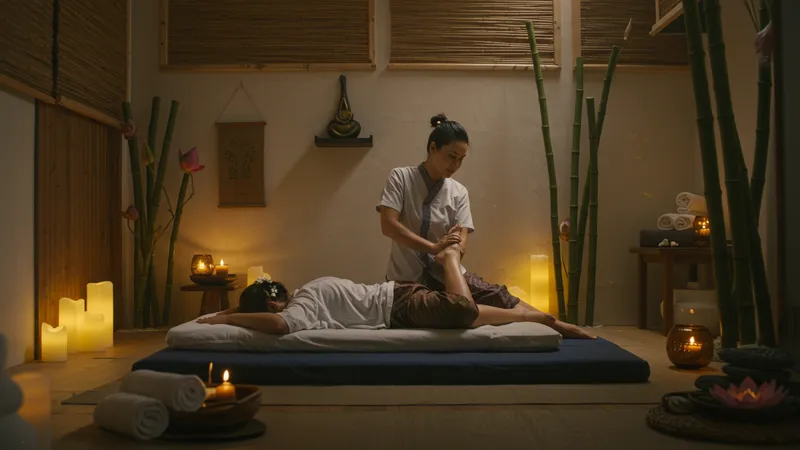
Clients who incorporate Thai massage into their routines often report profound lifestyle shifts. Beyond immediate physical benefits, they notice improved mental clarity and emotional resilience. It showcases the power of consistent integrative practices in everyday life.
The decision to adopt Thai massage as a lifestyle choice aligns with self-care, building sustainable habits around wellness. This integrative approach resonates with those committed to personal development and proactive health, where the benefits gather and grow over time.
With lifestyle diseases on the rise, embracing Thai massage cultivates an awareness that transcends temporary relief. It invites introspection, encouraging deliberate, healthier choices that resonate throughout aspects of life, proving that sometimes, the best choice is the simplest.
As traditional practices blend with modern trends and technology, the future of Thai massage looks both promising and exciting. It stands ready to meet new wellness trends while staying rooted in its storied past. What's next might reshape industry standards.
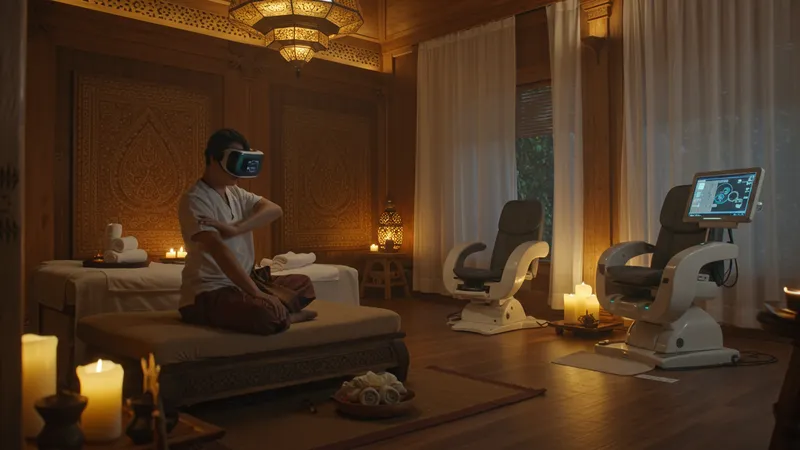
The diversification of offerings, from niche sessions to integrated wellness packages, represents this evolution. We’re seeing innovative collaborations that push the boundaries, as the profession embraces both time-honored traditions and cutting-edge advancements.
Continued research into Thai massage’s tangible health benefits could pave the way for smoother integration into conventional healthcare systems. This trajectory signifies not just acceptance but an acknowledgment of its value alongside established medical practices.
The question remains: as the practice grows in sophistication and reach, how will Thai massage influence broader wellness conversations? Expect to see its impact deepen across cultural, social, and health landscapes, opening doors to new possibilities in global holistic care.
The incredible journey of Thai massage serves as a potent reminder of the wisdom embedded in ancient traditions. These practices not only survive but thrive, adapting to an ever-changing world. Their continued relevance speaks volumes about human nature's craving for connection, healing, and peace.
If this exploration into the depths of Thai massage left you intrigued, why not take the next step? Share this story, book your first session, or dive further into the rich landscape of wellness choices available. Because when ancient wisdom meets modern living, the possibilities are limitless.